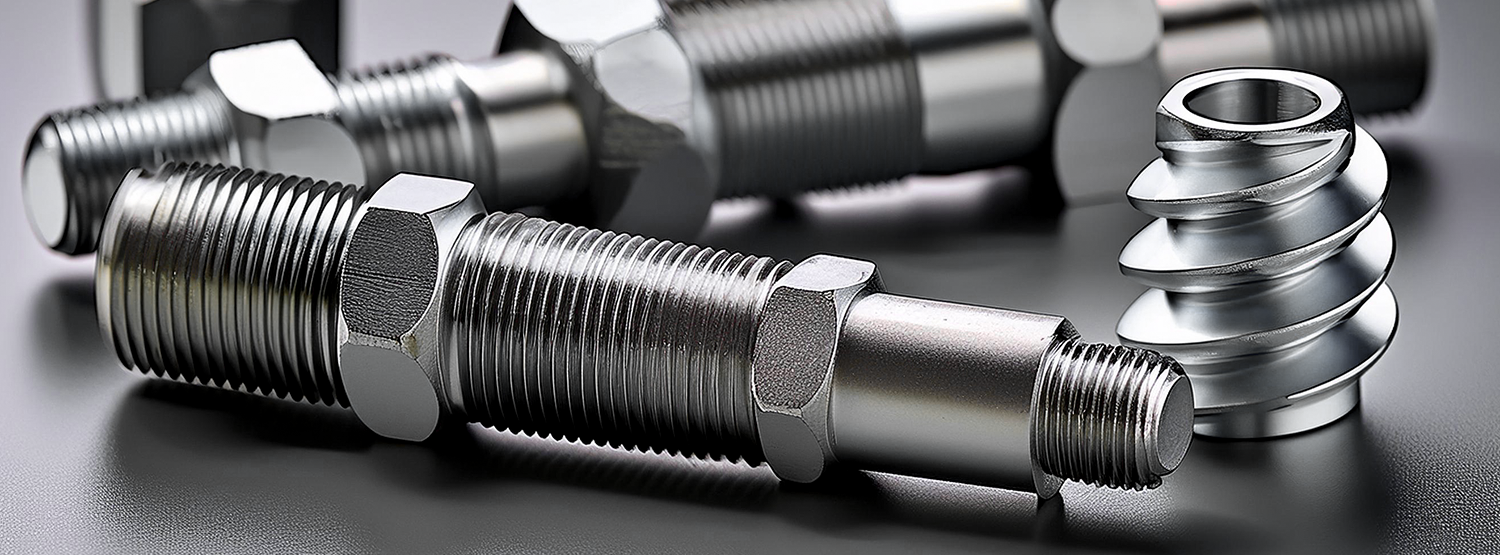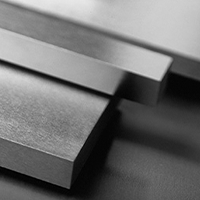Mild steel is a non-alloyed low carbon steel!

Mild steel is also referred to as low carbon steel and has a content of around 0.05 % to 0.25 % of carbon by weight. It is non-alloyed and does not contain significant amounts of other elements like chromium or molybdenum.
The composition of iron and carbon gives mild steel properties such as high ductility, good machinability, and weldability, but lower hardness and tensile strength compared to higher carbon steel.
Due to the high iron content which makes the material ferromagnetic, mild steel is suitable for magnetic clamping during machining processes. On the other hand mild steel is very soft compared to higher carbon steels and is prone to corrosion.
Overall, mild steel's balance of strength, ductility, and cost make it a popular
WHY IS IT CALLED MILD STEEL?
Mild steel is named for its low carbon content, which makes it malleable, ductile, and less brittle. These properties allow for easy processing, such as rolling, forging, and welding. The low hardness and high ductility make mild steel versatile for various applications, including construction, automotive, and household appliances.
It is easy to cut, weld, and shape without significant metallurgical changes. The term "mild steel" distinguishes it from harder, more brittle types of steel, emphasizing its improved workability and adaptability.
Common Grades of Mild Steel
Mild steel (low carbon steel) comes in various grades, each with specific properties and uses. The properties of mild steel are primarily influenced by the carbon content and the presence of trace amounts of other elements. Two of the most common grades are AISI A36 and AISI 1018 and you are able to buy 1018 / A36 in flat and round bars with us.
A36 Mild Steel | 1018 Mild Steel |
|
|
MILD STEEL CHART - DIFFERENCES AND SIMILARITIES
This table provides a quick overview of the differences and similarities between the A36 and 1018 mild steel.
Mild steel A36 | Mild steel 1018 |
Carbon content of 0.25 - 0.29 % | Carbon content of 0.15 - 0.20 % |
Hot rolled | Cold rolled |
Rougher surface | Smoother surface |
Higher strength | Better ductility |
Good machinability | Very good machinability |
Good formability | Very good formability |
Low corrosion resistance | Low corrosion resistance |
Good weldability | Good weldability |
CHARACTERISTICS OF MILD STEEL
The low carbon content makes mild steel more ductile and malleable compared to high carbon steels.
While it is not as strong or hard as higher carbon steels, mild steel is more easily shaped and welded.
Mild steel can be welded without requiring special precautions.
It is easy to machine, which makes it suitable for a wide range of industrial applications.
It is relatively inexpensive compared to other types of steel.
CHARACTERISTICS OF MILD STEEL
The low carbon content makes mild steel more ductile and malleable compared to high carbon steels.
While it is not as strong or hard as higher carbon steels, mild steel is more easily shaped and welded.
Mild steel can be welded without requiring special precautions.
It is easy to machine, which makes it suitable for a wide range of industrial applications.
It is relatively inexpensive compared to other types of steel.
Mild steel Properties | Mild steel Uses |
|
|
PROS AND CONS OF MILD STEEL

Advantages | Disadvantages |
|
|
HOW TO PREVENT CORROSION OF MILD STEEL
To prevent corrosion and extend the lifespan and structural integrity of mild steel products they can be protected by galvanizing, powder coating, painting, oiling, cladding or blueing.
On top of the former mentioned protections, regular maintenance and inspections can help identify potential weak spots.
SUMMARY
Mild steel is the chosen product when machinability, weldability and costs are important for your project. It is the chosen product in many applications and industries due to its easy workability and versatility. Mild steel is found in many of our everyday items we use or work with.
• Very good machinability
• Good toughness
• Good weldability
• High mechanical properties
• Surface hardenability
ABRAMS Industries® Mild steel
We pride ourselves in supplying you with precision in tool steel, high speed steel, stainless steel, heat-treatable steel and case hardening steel in 44 steel grades with 83,928 dimensions.
As a food grade steel supplier we saw, mill and grind for you in our Warehouse in Illinois.
Customized mild steel
Mild steel plates
Mild steel rounds
Customized mild steel
Mild steel plates
Mild steel rounds

Dr. Jürgen Abrams
Founder, CEO
Experienced steel specialist
Dr. Jürgen Abrams is the founder and CEO of ABRAMS Industries®, a customer-oriented company specializing in premium steel and customized precision steel and aluminum.


